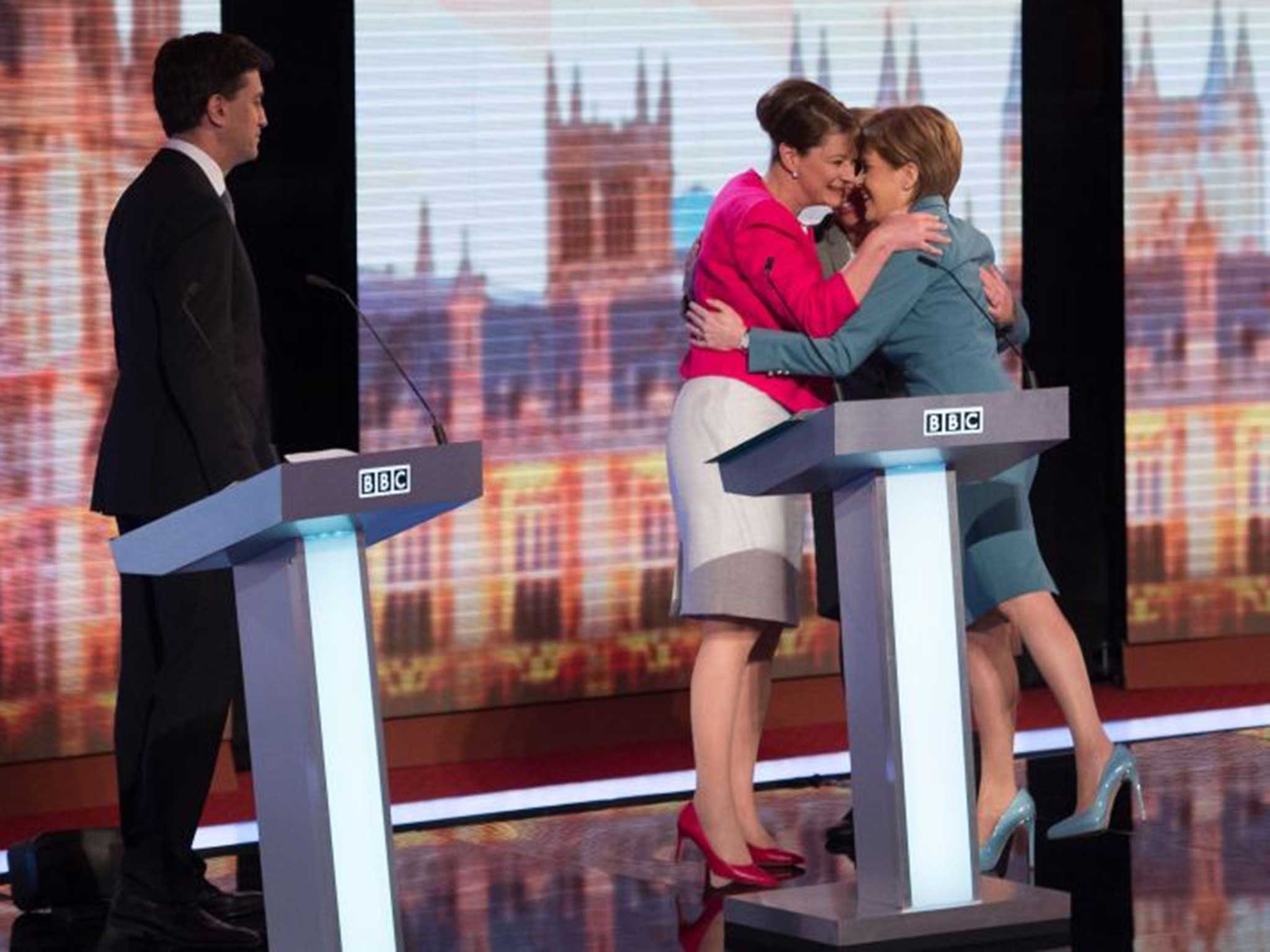Women don't have to be touchy-feely to be political
The excruciating impression from last week's challengers' debate was that women are incapable of hard choices or of confronting economic realities

There are two ways of looking at the challengers’ debate last week in respect of women in politics. One, the near-universal view is, aah, how lovely to see three “feisty”, articulate women take on the male establishment and, in the case of Nicola Sturgeon, give them all a run for their money.
The other view, mine, is that it was a deeply dispiriting 90 minutes, which seemed to suggest that women conform to a single political stereotype, viz, the left-of-centre, tax-and-spend kind, which sees public spending in child’s-play terms of doctors-and-nurses and doesn’t really do deficits or the national debt. There’s nothing inherently wrong with this approach, or with, say, an antipathy to Trident.
What was really unhelpful was that all three women had much the same world view: austerity yuk, public debt unmentionable, immigration great (more doctors and nurses!) and Nigel Farage and nuclear weapons beyond the pale. If you accept the obvious truth that women are politically as diverse as men, this trio was representative only of one strand of women in politics – the “Syriza tendency”. Yet the impression was that this is what political women look like. It’s a stereotype of its own, and it drives me nuts.
The excruciating impression was that women are incapable of hard choices or of confronting economic realities – so they ignored Farage’s unanswerable point about the housing crisis, viz, that it is a problem of demand as well as supply, demand that is largely driven by immigration.
It was a particular disgrace that Natalie Bennett couldn’t take his argument on board – you’d think that a bloody Green would have registered that if net foreign migration is at the rate of a third of a million a year (last year’s figure) then it is going to have a drastic effect on demand for housing, and this, in turn, is going to have a problematic impact on the environment. But nope, she just parroted the same stuff as the others about the enriching effect of migration.
Funnily enough, if this debate had been a purely Scottish affair, there would indeed have been a dissident woman’s voice, that of the Scottish Tory leader, Ruth Davidson, who is as forceful in her way as Sturgeon. If Farage had come down with a cold his place would have been taken by Suzanne Evans, the main author of Ukip’s manifesto. But, no, the impression from last week was that women conform to a single world view, viz, the touchy-feely, let’s not do defence, sort.
The one mercy was that last week’s trio weren’t corralled into the “women’s issues” bit of politics – the affordable childcare corner. Of course, there are women’s issues: the economy, immigration, education standards, social care and foreign affairs, especially the insurgent Islamic State. In other words, they’re exactly the same as men’s issues. Because women are as diverse as men. End of.
The Independent has got together with May2015.com to produce a poll of polls that produces the most up-to-date data in as close to real time as is possible.
Click the buttons below to explore how the main parties' fortunes have changed:
All data, polls and graphics are courtesy of May2015.com. Click through for daily analysis, in-depth features and all the data you need. (All historical data used is provided by UK Polling Report)
Join our commenting forum
Join thought-provoking conversations, follow other Independent readers and see their replies
Comments
Bookmark popover
Removed from bookmarks